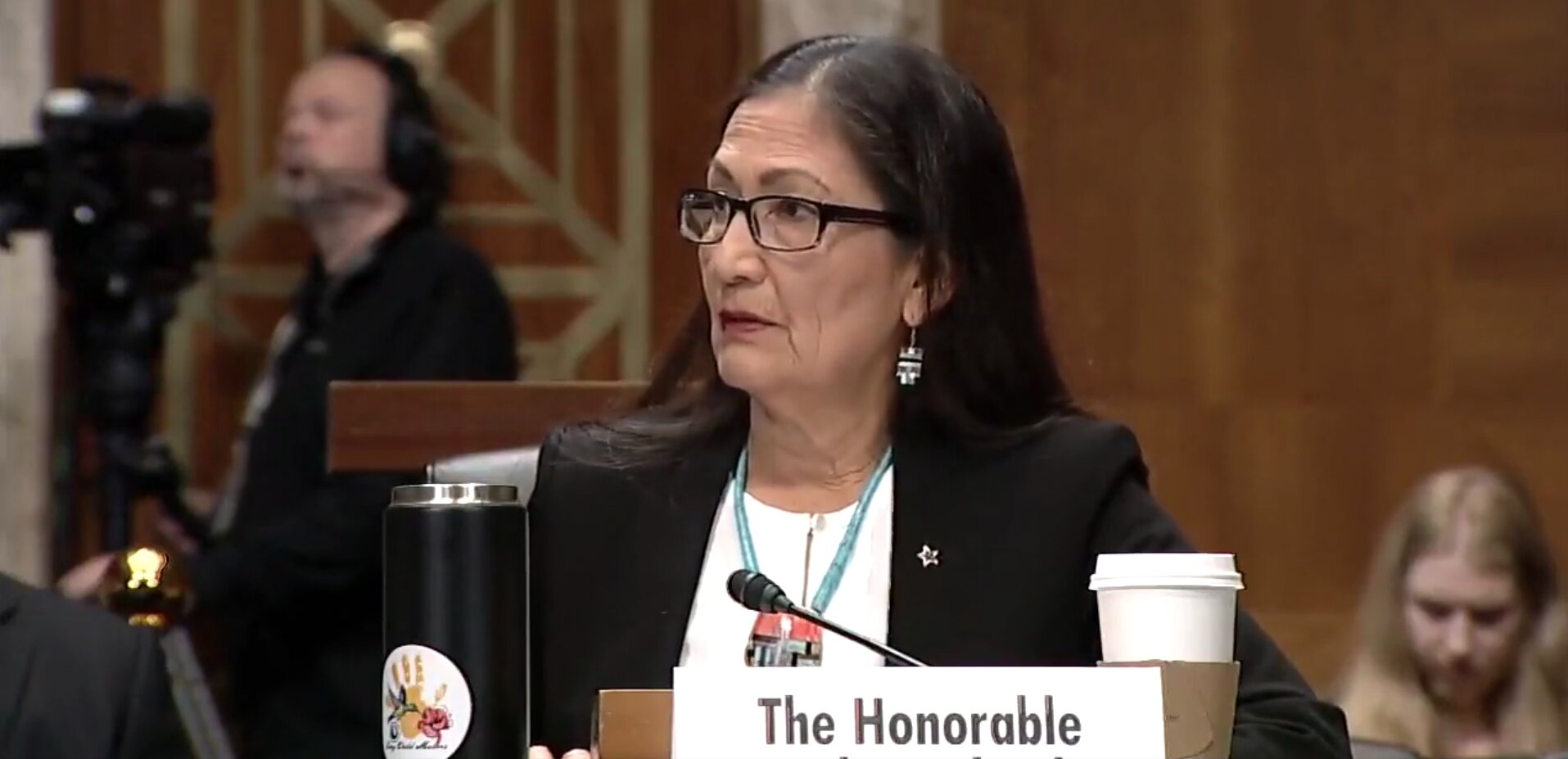The top official in charge of the department that has a hand in mining permits for crucial minerals used in lithium-ion batteries is apparently unaware of what country dominates the production of those materials globally.
During a hearing on Tuesday, Sen. Josh Hawley (R-Mo.) grilled Interior Secretary Deb Haaland on some key facts about mining for minerals critical to electric vehicle production.
“On the subject of these sweeping mandates related to electric vehicles that the Biden administration has imposed — including now for our military — the metals needed to make the lithium-ion batteries in those vehicles are, of course, lithium, nickel, graphite, and cobalt,” Hawley said.
He asked, “Can you tell me what nation is the largest producer of refined lithium in the world?”
“No, I can’t,” Haaland answered.
“It’s China,” Hawley responded before asking, “Can you tell me which nation is the largest producer of refined cobalt in the world?”
“No, senator,” Haaland responded.
Hawley said the answer is China as well. Additionally, he pointed out China is the largest exporter of natural graphite to the U.S.
China is the leading processor of lithium and cobalt. And it is the world’s largest exporter of natural graphite.
Watch the video below:
Sen. @HawleyMO asks Biden Interior Secretary Deb Haaland if she knows that China controls the critical minerals needed for electric vehicles.
— Washington Free Beacon (@FreeBeacon) May 2, 2023
She has no idea. pic.twitter.com/DfKsFep0hn
The senator said, “In all of these instances… your decision to trade off our energy security in favor of a radical climate change agenda is making us more and more dependent on China.”
He noted the Interior Department withdrew 225,504 acres in the Superior National Forest in Minnesota from consideration for new mine leasing. The Washington Examiner noted in January the move will have the effect of “cutting off the mineral-rich area from future development and likely killing a major mining project in the works.”
The forest happens to include the Boundary Waters Canoe Area Wilderness, which is a popular destination for hikers.
In a statement, Haaland said, “Protecting a place like Boundary Waters is key to supporting the health of the watershed and its surrounding wildlife, upholding our Tribal trust and treaty responsibilities, and boosting the local recreation economy.”
The Institute for Energy Research noted a major project was planned in the area to mine crucial minerals such as copper, nickel, and cobalt. Additionally, it stated 88% of the United States’ cobalt reserves are found in the Superior National Forest.
Trying to protect our nation’s wildlife and be good stewards of nature are goals we should be striving for.
But these minerals are coming out of the ground one way or the other. And they are being used to help make electric vehicles, which green energy advocates argue will help protect the environment.
And after the supply chain issues we saw in the wake of the COVID-19 pandemic, and Russia threatening to cut off energy supplies to Europe, it is pretty clear that becoming reliant on adversarial countries for key materials can put us in a world of hurt.
So if the U.S. wants to transition to EVs, it should be trying to ramp up domestic mining for minerals used in EV production to ensure it is not entirely reliant on China.
At the very least, if you are going to block domestic mining due to environmental concerns here, you should at least be honest about what the trade-off is. In this case, China is dominating the supply chains for materials used to build electric vehicles and the U.S. largely is dependent on it for those minerals.

























 Continue with Google
Continue with Google